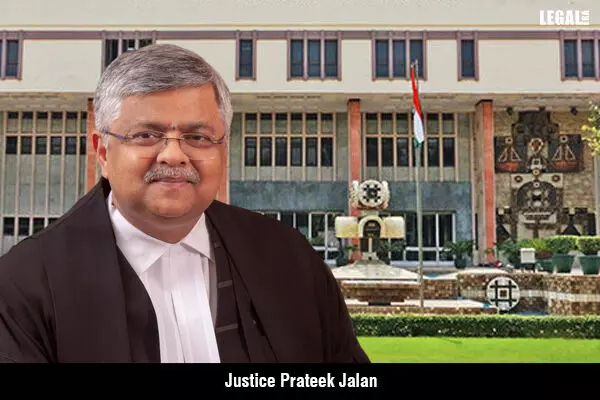- Home
- News
- Articles+
- Aerospace
- Agriculture
- Alternate Dispute Resolution
- Banking and Finance
- Bankruptcy
- Book Review
- Bribery & Corruption
- Commercial Litigation
- Competition Law
- Conference Reports
- Consumer Products
- Contract
- Corporate Governance
- Corporate Law
- Covid-19
- Cryptocurrency
- Cybersecurity
- Data Protection
- Defence
- Digital Economy
- E-commerce
- Employment Law
- Energy and Natural Resources
- Entertainment and Sports Law
- Environmental Law
- FDI
- Food and Beverage
- Health Care
- IBC Diaries
- Insurance Law
- Intellectual Property
- International Law
- Know the Law
- Labour Laws
- Litigation
- Litigation Funding
- Manufacturing
- Mergers & Acquisitions
- NFTs
- Privacy
- Private Equity
- Project Finance
- Real Estate
- Risk and Compliance
- Technology Media and Telecom
- Tributes
- Zoom In
- Take On Board
- In Focus
- Law & Policy and Regulation
- IP & Tech Era
- Viewpoint
- Arbitration & Mediation
- Tax
- Student Corner
- AI
- ESG
- Gaming
- Inclusion & Diversity
- Law Firms
- In-House
- Rankings
- E-Magazine
- Legal Era TV
- Events
- News
- Articles
- Aerospace
- Agriculture
- Alternate Dispute Resolution
- Banking and Finance
- Bankruptcy
- Book Review
- Bribery & Corruption
- Commercial Litigation
- Competition Law
- Conference Reports
- Consumer Products
- Contract
- Corporate Governance
- Corporate Law
- Covid-19
- Cryptocurrency
- Cybersecurity
- Data Protection
- Defence
- Digital Economy
- E-commerce
- Employment Law
- Energy and Natural Resources
- Entertainment and Sports Law
- Environmental Law
- FDI
- Food and Beverage
- Health Care
- IBC Diaries
- Insurance Law
- Intellectual Property
- International Law
- Know the Law
- Labour Laws
- Litigation
- Litigation Funding
- Manufacturing
- Mergers & Acquisitions
- NFTs
- Privacy
- Private Equity
- Project Finance
- Real Estate
- Risk and Compliance
- Technology Media and Telecom
- Tributes
- Zoom In
- Take On Board
- In Focus
- Law & Policy and Regulation
- IP & Tech Era
- Viewpoint
- Arbitration & Mediation
- Tax
- Student Corner
- AI
- ESG
- Gaming
- Inclusion & Diversity
- Law Firms
- In-House
- Rankings
- E-Magazine
- Legal Era TV
- Events
Delhi High Court: Section 29A Time Limit Not Applicable To Arbitration Proceedings Commenced Before 2015 Amendment

Delhi High Court: Section 29A Time Limit Not Applicable To Arbitration Proceedings Commenced Before 2015 Amendment
Justice Prateek Jalan of the Delhi High Court has ruled that the time limit stipulated under Section 29A of the Arbitration and Conciliation Act does not apply to arbitral proceedings that commenced under Section 21 before the 2015 amendment. The court clarified that the commencement of arbitration proceedings, as defined under Section 21, is the relevant criterion for determining the applicability of Section 29A post-2015 amendment. This concept is distinct from the entering upon the reference criterion that was previously referenced under Section 29A before the amendment.
The case involved a petition filed under Section 29A of the Arbitration and Conciliation Act, 1996, seeking an extension of the mandate of the Arbitral Tribunal. The disputes arose from a contract dated 15.09.2008, which concerned the construction of foot over bridges on the Qazigund-Baramulla section of the new BG rail link project in Jammu and Kashmir.
Ircon International Limited (the Respondent) did not oppose the continuation of the arbitral proceedings but argued that Section 29A did not apply to these proceedings, as they had commenced before the introduction of Section 29A. The arbitration clause was invoked by Chinar Steel Industries (the Petitioner) on 14.04.2009. The matter initially reached the High Court of Jammu and Kashmir under Section 11 of the Arbitration Act but was dismissed due to a lack of territorial jurisdiction, leading to several appeals and dismissals.
Eventually, the High Court constituted the Arbitral Tribunal by an order, and the proceedings continued with the parties’ filing pleadings, presenting evidence, and nearing the final hearing stage. The Respondent contended that the mandate of the Arbitral Tribunal was not subject to the time limits set by Section 29A, as this section was introduced by the Arbitration and Conciliation (Amendment) Act, 2015, effective from 23.10.2015, and Section 26 of the Amending Act specified that the new provisions would apply only to proceedings commenced thereafter unless otherwise agreed by the parties.
The central issue before the High Court was whether Section 29A, which mandates the completion of arbitration proceedings within a specific timeframe, applied to the ongoing proceedings.
The High Court referenced the case of Republic of India Through Ministry of Defence v. M/s Agusta Westland International Ltd., where it was determined that the commencement of arbitration proceedings, as per Section 21, is the determining factor for the applicability of Section 29A. The court distinguished the concept of commencement from entering upon the reference, the latter being relevant before the amendment of Section 29A. Given that the arbitration proceedings in the present case had commenced before the amendment date of 23.10.2015, the court held that Section 29A did not apply.
Although the Arbitral Tribunal was constituted on 20.09.2022, which was after the insertion of Section 29A, the High Court found this timing irrelevant since there was no fresh invocation of arbitration after the proceedings in the High Court of Jammu and Kashmir. This meant that there was no new commencement of proceedings under Section 21.
Consequently, the High Court dismissed the petition and the pending application, concluding that Section 29A was not applicable to the arbitral proceedings in question.



